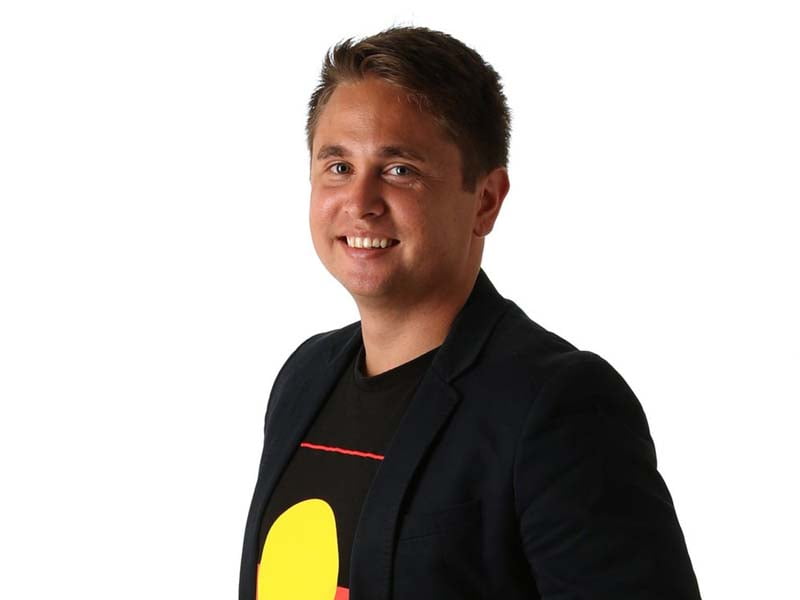The Queensland government believes it’s on the right the track to helping reduce the disadvantage gap among Indigenous Australians.
But Kamilaroi man Dean Foley – the founder of Australia’s first ever Indigenous Startup Weekend and Indigenous startup accelerator Barrayamal – begs to differ.
“Besides Startup Weekend in August last year, we’ve received nothing from the Queensland government. They like to come to our events… [but] I’ve had more conversations with the NSW government than I have had with the Queensland government,” Mr Foley said.

Last year, when Mr Foley launched Australia’s first ever Indigenous Startup Weekend, $13,500 in funding was provided by the Queensland government under the Advance Queensland Young Starters’ grant to help stage the event.
But due to the lack of funding and support from both government and industry, according to Mr Foley, the successful event will not be returning this year.
In September, the state government reaffirmed its commitment to help Indigenous Australians as part of its Department of Aboriginal and Torres Strait Islander Partnerships 2016-17 annual report.
The report said during the last financial year, 385 Indigenous-owned businesses secured an estimated $270 million in state government procurement, an increase by around $100 million from the previous year.
“Through a number of new initiatives, we are starting to see an increase in partnerships, business opportunities and jobs for Indigenous Queenslanders, and we want to boost that even further,” said Mark Furner, Minister for Aboriginal and Torres Islander Partnerships.
“In 2016-17, our government continued to create more employment opportunities through a variety of programs, which saw my department facilitate 1074 job placements – more than double its target.”
Further, the state government announced last month it will increase its total contracts with Indigenous businesses under the whole-of-government Queensland Indigenous Procurement Policy to 3 per cent by 2022 – an underwhelming figure given the state government’s total target to buy local is 30 per cent under its multi-billion dollar Buy Queensland procurement strategy.
“I’d love to stay in Queensland because there’s been a lot of great work … but we have absolutely received no support from the Queensland government,” Mr Foley said.
Mr Foley’s pursuit to help Indigenous Australian was born out of his own experience, growing up in a low-socio economic family in the rural NSW town of Gunnedah, and it wasn’t until joining the Royal Australian Air Force did things begin to change.
“I never knew what was possible until a friend in the Air Force gave me a book called Rich Dad, Poor Dad and I had that light bulb moment where [you see] you can become successful in business, and become financially free for yourself and to be in a position where you can help other people,” he said. “The initial goal was to try get into business when I left.”
However, when he looked initially for help to start his own business, he recognised that a lot of big organisations and government just wanted to “get all the ticks in their boxes, hit their KPIs so they look good”.
Another issue Mr Foley said he faced was the difficultly of connecting with the wider startup community, which he claimed is receiving all the funding – or when funding is provided to Indigenous affairs it’s mostly a government-owned organisation.
“I find the startup community sometimes have got their little group and if you’re not in their group, it’s a bit disappointing because obviously we’re doing a lot of great work but all of these other organisations that are tied up in these group are given all the funding.”
Although none of this has deterred Mr Foley, who partnered with startup accelerator SlingShot. Together they launched Baraymal, a mini-accelerator program for Indigenous entrepreneurs, which offered mentorship, networking and training to five Indigenous startups over four weeks in Fishburners’ Brisbane office at the end of last year.
Since then, Barayamal launched CoderDojo First Nations coding club for Indigenous Australians; a charity hackathon known as Give Backhackathon that helped four Indigenous charities by providing tech-based solutions; and a Budding Entrepreneurs Program that offered mentoring for Indigenous and non-Indigenous entrepreneurs for three months.
Opportunities in Sydney and Melbourne are also currently being explored as part of talks with the NSW government and LaunchVic, Mr Foley said.
“I see Barayamal rapidly expanding across Australia. Hopefully we can get into a position where we’re financially sustainable and can continue helping the next generation of Indigenous tech entrepreneurs.”
But it’s not all just about funding either, Mr Foley said, rather it’s about providing education to the Indigenous community to give them economic empowerment in order to reduce the Indigenous unemployment rate.
Based on findings by the Australian government, the unemployment rate of Indigenous Australians have increased since 2008 to 21 per cent and is four times higher than the current non-Indigenous unemployment rate of 5 per cent.
He added there is also great opportunity to reduce the current digital divide in remote areas by making internet – which he criticised is currently costly and slow even with the NBN – more accessible, so that those living in remote areas do not have to travel into the city to get an education.
“We’ve got this massive young Indigenous change coming up who have the opportunity to get an education and become highly skilled, so there are a lot of opportunities to build that economic development.”
Do you know more? Contact James Riley via Email.

